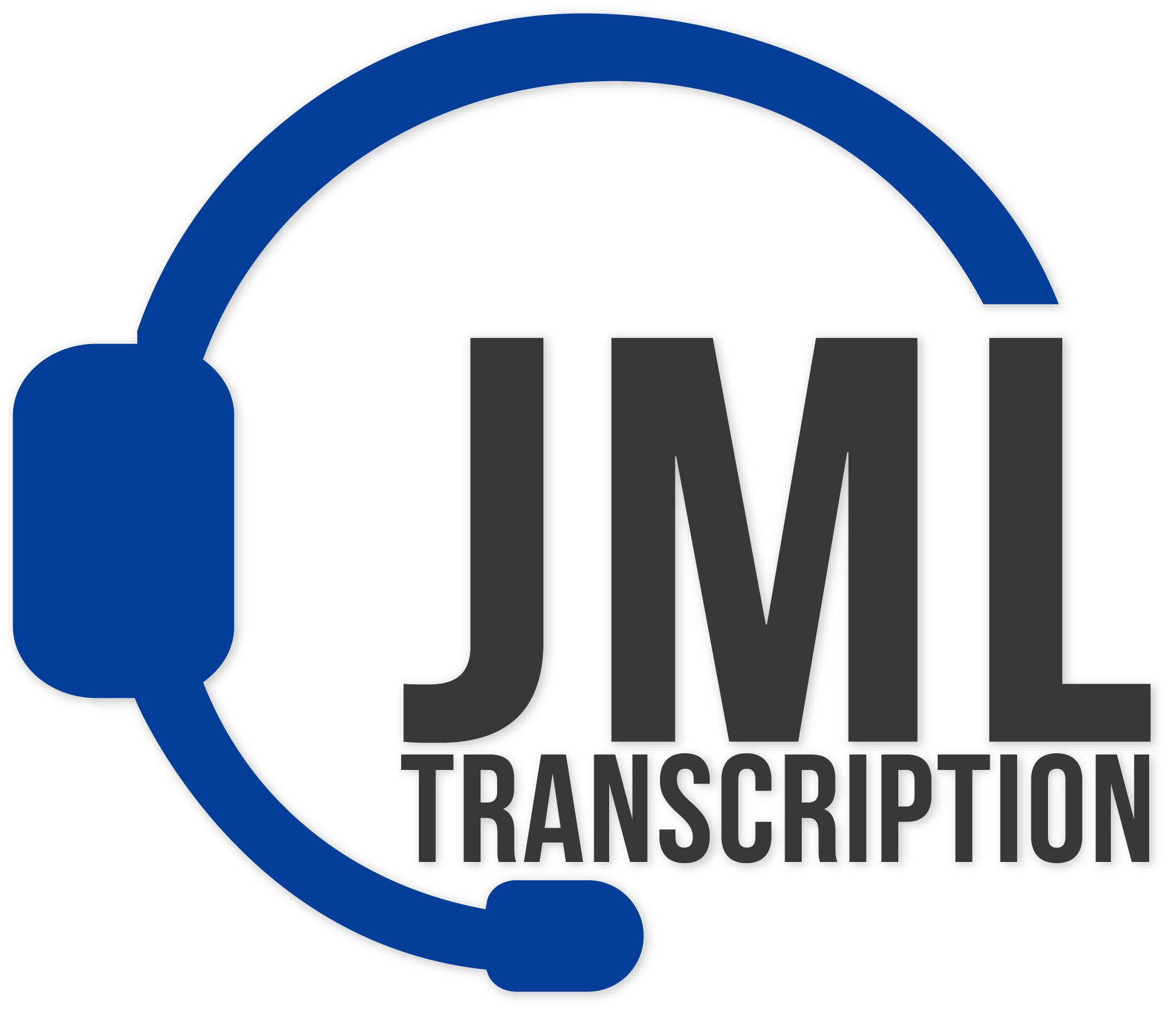
The courtroom is a magnificent stage of justice! In this setting, each word spoken holds significant importance. This intricate symphony of dialogues must be documented with precision. Two notable entities in the documentation are legal transcriptionists and court reporters.
However, what distinguishes them within this complex performance? Although both serve essential functions, their roles diverge. Let’s explore the captivating realm of Legal Transcription vs Court Reporting.
Legal Transcription vs Court Reporting
What is Legal Transcription?
Legal transcription entails the process of converting audio recordings from legal proceedings into written text. This can encompass court hearings, depositions, and interviews. Transcription services demand attentive listening to these recordings and the accurate typing of their contents.
Legal transcription services are essential for crafting detailed records of legal proceedings because they ensure that every word is documented with precision. Although this task may seem straightforward, it requires a high level of skill and focus.
What is Court Reporting?
Court reporting involves the immediate transcription of spoken language during legal proceedings. Court reporters utilize specialized equipment, such as stenotype machines, to meticulously record every word as it is articulated. A court reporter captures the dialogues in real time and this is essential because it ensures the creation of a live and accurate record of the events.
However, the process requires significant skill and attention to detail. Although it may seem easy, the complexity lies in maintaining accuracy under pressure.
Legal Transcription vs Court Reporting: Key Differences
Timing
- The legal court transcriber (often referred to as a transcriptionist) works with audio recordings after the fact or the legal event is over.
- However, court reporters transcribe in real-time during proceedings.
This distinction is crucial because it highlights the different roles these professionals play in the judicial process. Although both positions require a high level of accuracy, the immediacy of a court reporter’s work can be particularly demanding. Nevertheless, the transcriber’s role is equally important, as it ensures that accurate records are maintained for future reference.
Tools and Techniques
- Court reporters frequently depend on sophisticated stenographic equipment. They must be swift and accurate. Their live transcripts may also incorporate annotations.
- However, authorized court transcriptionists rely on playback tools. They often utilize digital software to improve clarity, because this guarantees an exact transcript—even from low-quality recordings.
Although both roles aim for precision, their methods differ significantly. Contact us to connect with the best court reporters and legal court transcribers. Our advisory team at JML Transcription Services is comprised of highly experienced transcriptionists and former lawyers ensuring accuracy and timely delivery of legal transcripts.
Work Environment
- Court reporters operate in various legal settings such as courtroom sessions and depositions. They engage with lawyers, judges, and witnesses, which requires a significant amount of focus and presence.
- However, legal transcriptionists frequently work remotely. They can manage cases from any location, including their homes. This flexibility enhances the overall accessibility of transcription services, although it presents unique challenges.
Both professions play crucial roles in the legal process, but they do so in markedly different environments.
Speed and Turnaround
- Court reporters deliver immediate outcomes. Their live transcription is available in real-time.
- Transcriptionists, however, require more time to ensure accuracy. Legal transcription services involve thorough reviewing and editing, which can often extend the process for hours or even days depending on the complexity of the materials. This meticulous attention to detail is crucial because accuracy in legal documentation is paramount.
Although the speed of court reporters is impressive, the careful work of transcriptionists is equally important.
Certification and Skills
- A legal court transcriber typically doesn’t require formal certifications; however, proficiency in legal terminology is essential for them. They must possess outstanding listening and typing skills.
- Court reporters, on the other hand, need specialized training. Certifications such as RPR (Registered Professional Reporter) or CRR (Certified Realtime Reporter) are often necessary because they validate a certain level of expertise. They also have to manage high-pressure situations which can be quite daunting.
The Role of Legal Transcription Services

Legal transcription services are essential for law firms. These transcription services play a vital role in future reference. Lawyers often depend on legal transcription services during case reviews. They assist in the preparation of case documents and the review of testimonies.
In bustling cities, such as Toronto, premium transcription services in Toronto from a top-tier firm like ours guarantee that law firms obtain accurate and timely transcriptions. These services are invaluable for lawyers who are preparing for trials and appeals. It’s a valuable tool for building arguments and devising strategies. Although essential, these services do not come without their challenges.
The Importance of Court Reporting
Court reporting upholds the integrity of the judicial process. A competent court reporter that possesses the necessary skills ensures that every spoken word is recorded accurately, without errors. Court reporters promote transparency in live sessions and they document events as they unfold. This is critical in real-time legal scenarios because it allows for immediate access to information.
Such real-time documentation is essential for judges and lawyer to refer to during trials. It also provides a transparent record for appeals and future references.
How to Choose Between Legal Transcription and Court Reporting?
Choosing between legal transcription and court reporting presents a dilemma. Both roles are essential, however, they serve distinct purposes. If your case requires real-time documentation, court reporting is the preferred route. Conversely, for detailed and comprehensive records derived from audio, legal transcription is typically your best option. Law firms often utilize both services, depending on their specific needs.
Conclusion
Grasping the distinctions between legal transcription and court reporting is essential for those in the legal profession. Each serves a unique and critical function within the legal framework. Whether one requires the immediacy of court reporting or the meticulous detail provided by legal transcription, both have their respective places in the courtroom’s symphony.
With the appropriate transcription services or court reporting experts, the melody of justice persists seamlessly. In a context where every word holds significance, it is imperative to select the right service to guarantee that your legal needs are addressed with precision and accuracy. Keep your legal documents in alignment with the top professionals in the field; this will ensure clarity and coherence.
Choosing an adept legal court transcriber or a court reporter from an expert legal transcription and court reporting services from firm like JML Transcription Services guarantees peace of mind and a robust foundation for legal proceedings
Invest in expertise; trust the professionals who grasp the significance of every word. However, it is essential to recognize the nuances of this profession, because they play a critical role in ensuring fairness of the justice system.
Streamlining legal documentation with more than 25 years of expertise, JML Transcription Services serves Toronto and all of Canada. We are known for our precise and confidential transcription for depositions, hearings, and interviews. Our secure systems, experienced transcriptionists, and capacity to meet tight deadlines guarantee error-free results. Rely on JML Transcription Services for trusted legal transcription and court reporting services saving you time and simplifying your workload. Contact us now!
Disclaimer- The information provided in this content is just for educational purposes and is written by a professional writer. Consult us to learn more about legal transcription and court reporting.
FAQs
Do both services necessitate special equipment?
Yes, legal transcriptionists use standard keyboards and software. Court reporters use stenotype machines.
Are both services necessary for law firms?
Yes, both services are important and depend on the legal needs. Transcription services help in recording information in depth. Court reporting is helpful in recording data in real time.

